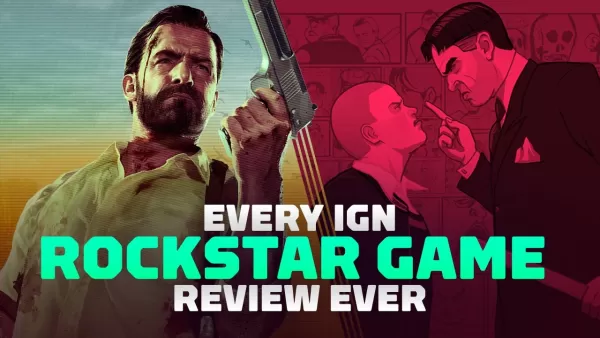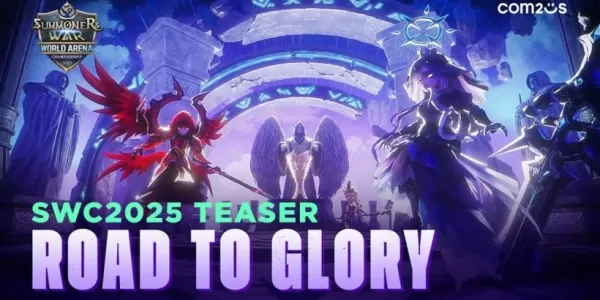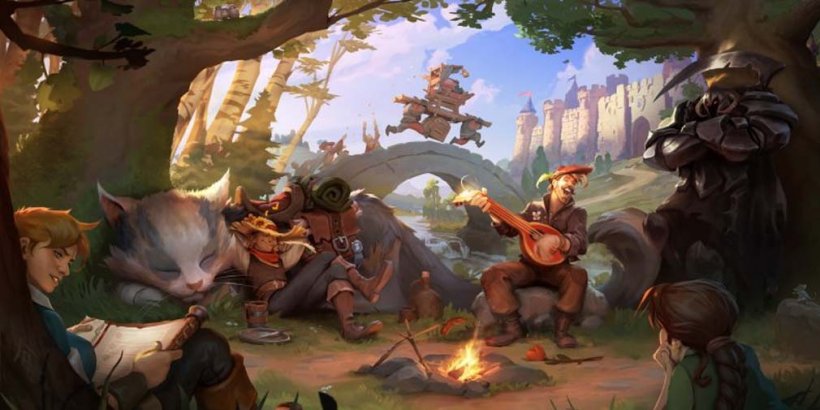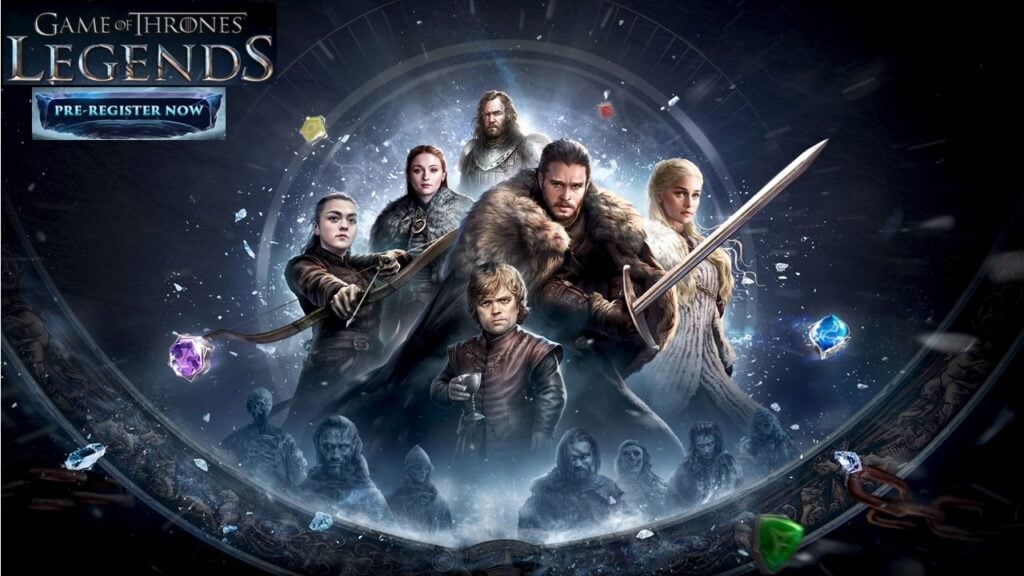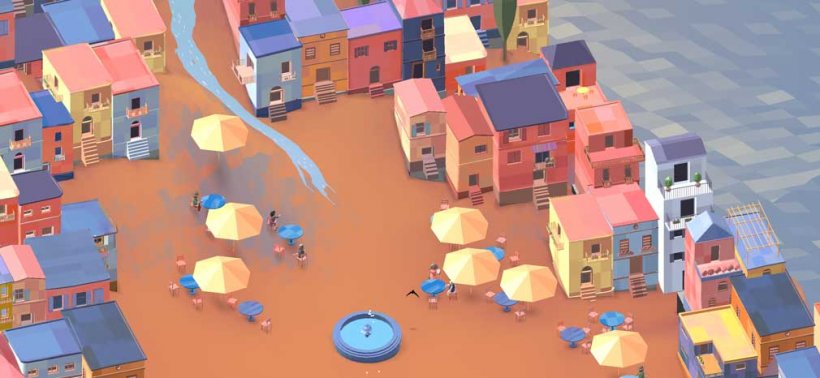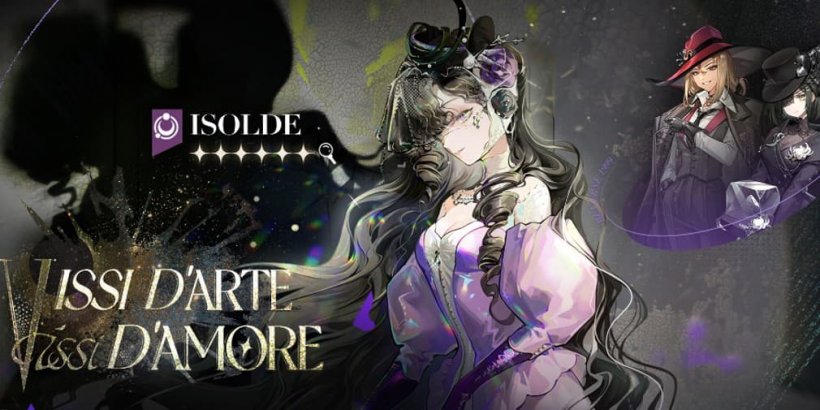Home > News > Marc Laidlaw's 40-Year-Old Cyberpunk Tale Adapted into Netflix's Love, Death and Robots Episode
Marc Laidlaw's 40-Year-Old Cyberpunk Tale Adapted into Netflix's Love, Death and Robots Episode
- By Liam
- May 26,2025
Marc Laidlaw penned the short story "400 Boys" in 1981 at the age of 21, long before he became Valve's lead writer and one of the primary architects behind the Half-Life series. Initially published in Omni magazine in 1983, the story gained broader recognition when it was included in the anthology "Mirrorshades: The Cyberpunk Anthology." On his website, Laidlaw notes that "400 Boys" might have reached more readers than any of his other works, save perhaps for his seasonal ad copy for Dota 2. While the video game community knows him best for his contributions to Half-Life, Laidlaw's career spans well beyond gaming, showcasing his diverse talents.
In a post-apocalyptic city where gangs adhere to a bushido-like code of honor, the emergence of the new gang, the 400 Boys, compels them to unite. This narrative, a captivating mix of beauty and brutality, was brought to life by Canadian director Robert Valley, who previously won an Emmy for his work on the "Ice" episode of Love, Death & Robots.
Reflecting on the origins of "400 Boys," Laidlaw shares, “The inspiration for it just came out of walking around. I lived in Eugene, Oregon, and there were always phone poles plastered with names of bands playing in town. I wanted to create a story that allowed me to invent lots of band names. By including various gangs, I could come up with names for all these different groups, which was a fun part of the story.”
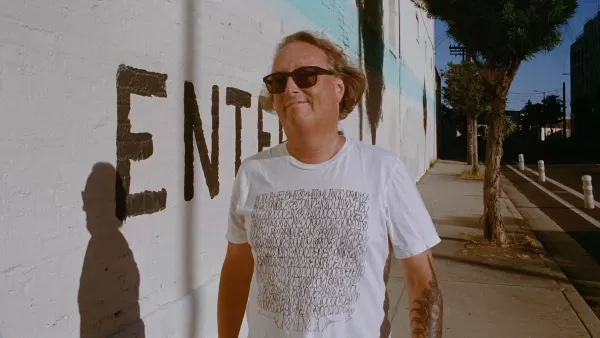 Over four decades after its initial publication, "400 Boys" has been adapted into an episode of the fourth season of Netflix's acclaimed animated anthology series, Love, Death & Robots. Directed by Robert Valley, who also helmed "Zima Blue" and "Ice" in earlier seasons, and written by Tim Miller, the episode features the voice of John Boyega, known for his role as Finn in Star Wars. Laidlaw never anticipated this resurgence of interest in his early work.
Over four decades after its initial publication, "400 Boys" has been adapted into an episode of the fourth season of Netflix's acclaimed animated anthology series, Love, Death & Robots. Directed by Robert Valley, who also helmed "Zima Blue" and "Ice" in earlier seasons, and written by Tim Miller, the episode features the voice of John Boyega, known for his role as Finn in Star Wars. Laidlaw never anticipated this resurgence of interest in his early work.
“The story kind of faded out, but cyberpunk kept going, and I didn't really think about it much,” Laidlaw explained in a video call just before the premiere of Season 4 of Love, Death & Robots on Netflix.
It took 40 years for "400 Boys" to find its way onto screens, a journey that might have been shorter. About 15 years ago, Tim Miller from Blur, a company renowned for video game cutscenes, approached Laidlaw about adapting the story. However, the project fell through due to studio changes.
Love, Death & Robots burst onto the scene in March 2019, captivating audiences with its edgy, adult-oriented animation. The series' unique blend of challenging and weird episodes drew viewers in, and Laidlaw noted Tim Miller's involvement with admiration. “I can't imagine anybody else who would've turned The Drowned Giant, this J. G. Ballard story, into an animated episode,” Laidlaw remarked.
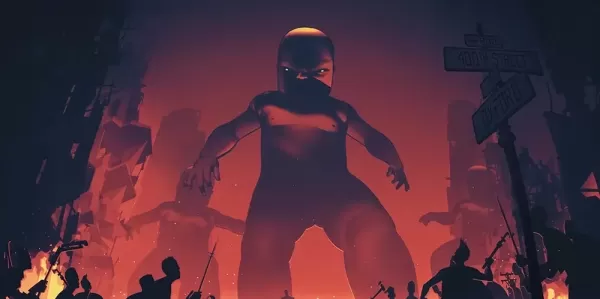 After moving to Los Angeles in 2020, Laidlaw met with Tim Miller at various events as the pandemic subsided. Although he didn't push for "400 Boys," the project came full circle when he received an email a year ago asking if he'd be interested in optioning the story. Laidlaw collaborated with Miller on the script, ensuring the adaptation stayed true to the original while incorporating new elements to enhance its visual storytelling. He also shared an audiobook version of "400 Boys" that he narrated during the early days of the pandemic.
After moving to Los Angeles in 2020, Laidlaw met with Tim Miller at various events as the pandemic subsided. Although he didn't push for "400 Boys," the project came full circle when he received an email a year ago asking if he'd be interested in optioning the story. Laidlaw collaborated with Miller on the script, ensuring the adaptation stayed true to the original while incorporating new elements to enhance its visual storytelling. He also shared an audiobook version of "400 Boys" that he narrated during the early days of the pandemic.
Despite his involvement, Laidlaw enjoyed taking a step back. “It was fun to sit back and not have to be involved in the trenches on something for once,” he said. “And I just kind of wanted to enjoy it when it was done and see what they made of it.”
Having seen the finished episode, Laidlaw praised the visual enhancements and the cast, particularly John Boyega. “John Boyega and the characters and the accents and the setting are just so cool to me. They made the story so much more fun visually,” he noted.
Laidlaw views "400 Boys" as a creation from a younger self. “It’s from a different me from lifetimes ago,” he said. “I'm still pretty happy with it considering how young I was when I wrote it.”
After a period of relative quiet, Laidlaw joined the gaming industry in 1997, contributing to Valve's Half-Life. “And that whole thing happened…” he reflected.
Laidlaw "retired" from Valve in 2016, which seemed like a full exit from creative work. However, he remains open to new projects, admitting, “I think I retired too hard.” The publishing industry had evolved significantly during his time in gaming, making a return to writing more challenging. He's also not interested in solo game development, stating, “I can't do games without a bunch of people. I can't make a game myself.”
Currently, Laidlaw focuses on music, gaining renewed attention after Valve's Half-Life 2 anniversary documentary and releasing a lost development video on his YouTube channel. “I'm like, I'm in the wrong business!” he jokingly remarked. “I should just be leaking information about my old employer.”
Reflecting on the Valve documentary, Laidlaw found it therapeutic. “It was good for me to just kind of process and put a bow on that stuff, see a bunch of old friends, think about that, the whole thing,” he said. “I hadn't talked to or seen a lot of those people for a long time. I still stay in touch with a few folks, but they're also not really there anymore. It was fun to hang out with people and talk it over.”
With the Half-Life and Half-Life 2 anniversary documentaries behind him, the only Valve game left for Laidlaw to discuss is Dota 2, now 12 years old. “I could speak to Dota. That's the only thing left,” he mentioned, hinting at potential future reflections on Alien Swarm as well.
Discussing the future of Half-Life, Laidlaw remains tight-lipped about any potential Half-Life 3, noting he's out of touch with Valve's current team. However, he expressed openness to writing for video games again, playfully suggesting Hideo Kojima should have contacted him for Death Stranding. “When Death Stranding came out, I just was grinding my teeth. Like, does he know I'm available? I'd be happy to help do the last polish of dialogue on your script and not wreck anything, but just make it lines that actors would sound better coming out of their mouth.”
Laidlaw's "hard retirement" has led to fewer offers than expected. “I did kind of expect more interesting offers of stuff to do afterward and was kind of like, ‘this is weird: somebody wants me to write their synopsis for their mobile phone laser tag game.' It's like, they don't know what I do,” he said, highlighting the mismatch between his skills and the projects offered.
When asked if he'd return to Valve for Half-Life 3, Laidlaw was firm. “I would not do that,” he stated. “Even when I was there, I started to feel like, ‘Oh, now I'm the old guy shooting stuff down.’ I think at some point you need to let the people who are the fans and the creators who've come in because of what they learned from you maybe, and let them have that. We need new stuff. We didn't need me going, ‘Well, the G-Man wouldn't do that in my day.’ And I found I had to restrain myself. People would get enthusiastic about stuff, and I felt like it was becoming a negative force on some of the creative process.”
He hasn't played Half-Life: Alyx, Valve's VR game, and feels disconnected from the current creative process. “I haven't played the VR Half-Life: Alyx, so I don't really feel like I can. I don't know what's going on with anything. And it is not really my place. God knows what it's doing in terms of creative process of how to get a great experience that will surprise people. And you have to be right at the edge of what you can do in a moment. And I'm not on that edge anymore. That's not what's interesting to me at this point. So I don't think I'd be good.”
Additionally, the demands of game development are too taxing for him now. “Plus, I'm one of the older guys, maybe not the oldest, but it's so much work. I mean, I don't think I could do that anymore. I get into my own things, but it's not on anyone else's schedule. And yeah, I'm pretty much done. I mean, maybe not done with games altogether, but definitely the Half-Life part of my life is way behind me.”
With his chapter in Half-Life closed, Laidlaw's past work continues to resonate, as evidenced by Netflix's adaptation of "400 Boys." He muses about the possibility of Netflix approaching Valve to adapt Half-Life in the future, which would bring him full circle once again.
Reflecting on his career, Laidlaw acknowledges his fortunate involvement in significant cultural movements. “The fact that I got into the cyberpunk thing before it was called cyberpunk, and then I came across this sort of beginning game company that ended up making Half-Life… I've been lucky to be a part of these things that just kind of become phenomena.”
